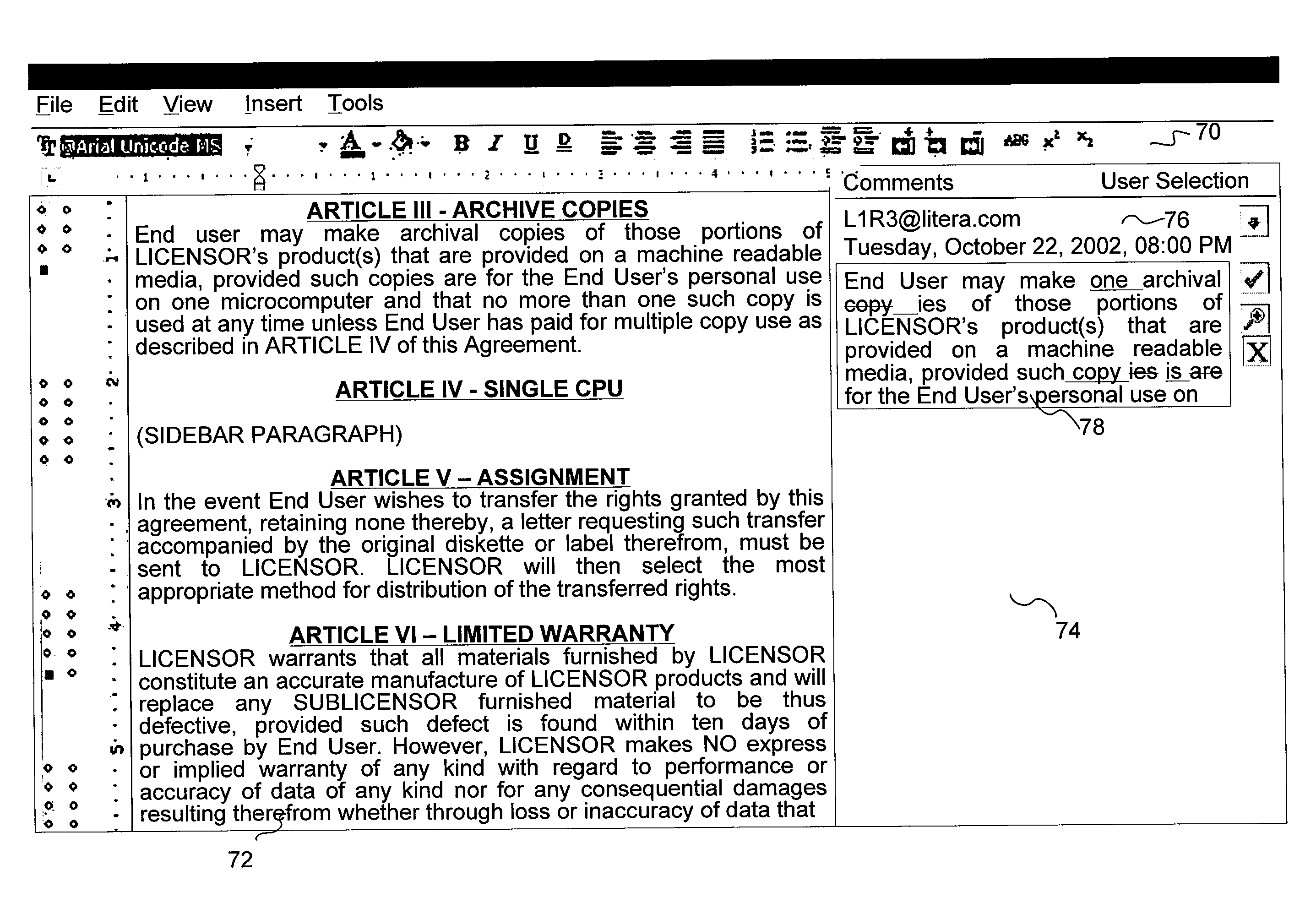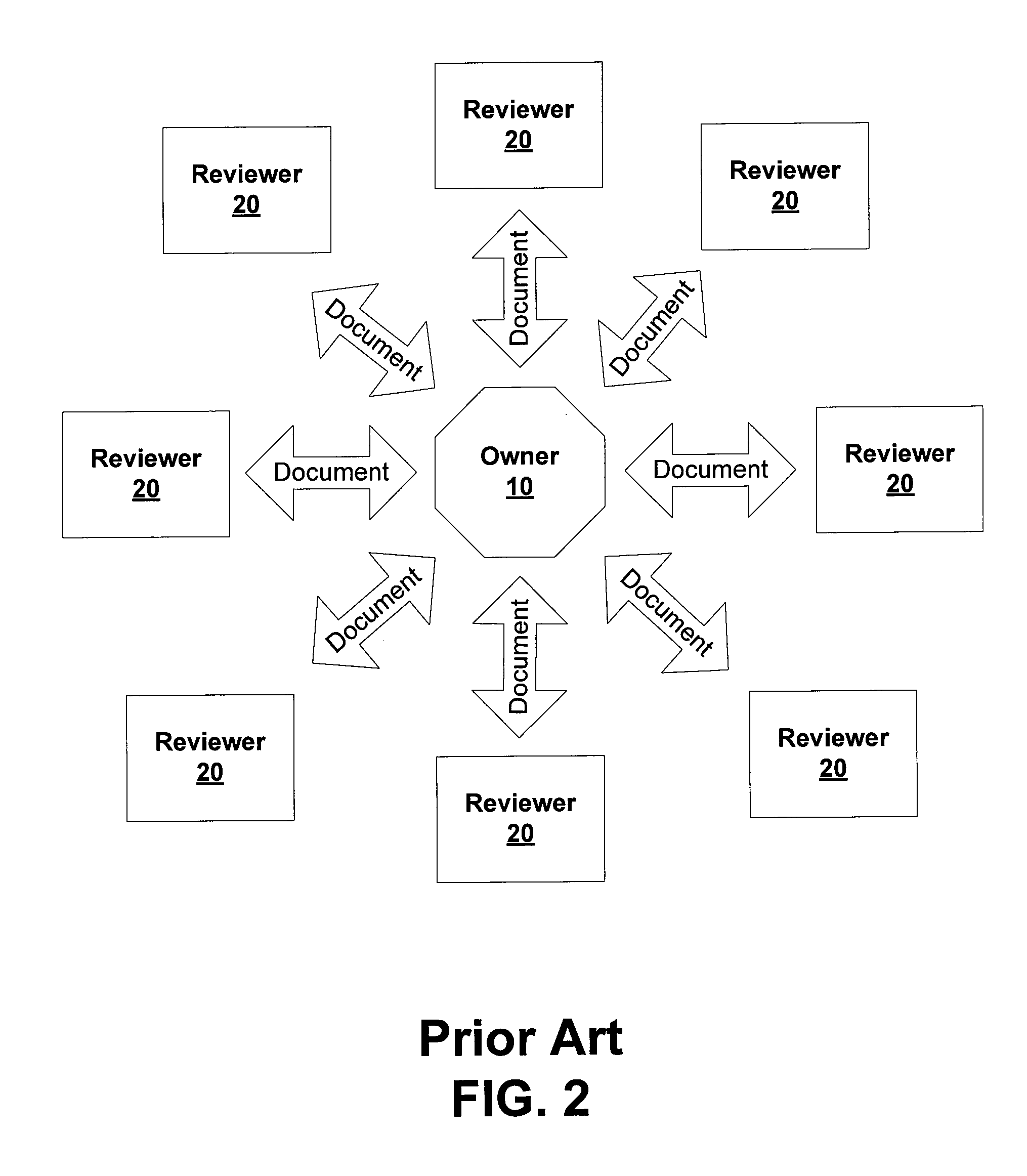Collaborative hierarchical document development and review system
a document development and review system technology, applied in the field of computer-based document development and review system, can solve the problems of inability to permit later reviewers to read comments, inherently time-consuming, and complicated identification of documents, and achieve the effect of convenient spotting
- Summary
- Abstract
- Description
- Claims
- Application Information
AI Technical Summary
Benefits of technology
Problems solved by technology
Method used
Image
Examples
Embodiment Construction
[0032]The present invention provides a computer-based document collaboration system. As shown in FIG. 3, an embodiment of the document collaboration system of the present invention is shown having a central database 102 connected to a network 110 of conventional personal computers or terminals 120. Such computer networks are well known in the art and typically but not necessarily comprise computers having a processing unit, a system memory, an input device, a display device and a system bus that couples these components to the processing unit. Additionally, a network controller is connected to the system bus for permitting the computer to communicate over a network. When used in a Local Area Network (LAN) environment, each personal computer 120 is connected to the local network 110 through such a network controller which may be configured to exchange information in one or more well known communication protocols such as TCP / IP. Alternatively, the computers in network 110 may be conne...
PUM
 Login to View More
Login to View More Abstract
Description
Claims
Application Information
 Login to View More
Login to View More - R&D
- Intellectual Property
- Life Sciences
- Materials
- Tech Scout
- Unparalleled Data Quality
- Higher Quality Content
- 60% Fewer Hallucinations
Browse by: Latest US Patents, China's latest patents, Technical Efficacy Thesaurus, Application Domain, Technology Topic, Popular Technical Reports.
© 2025 PatSnap. All rights reserved.Legal|Privacy policy|Modern Slavery Act Transparency Statement|Sitemap|About US| Contact US: help@patsnap.com



